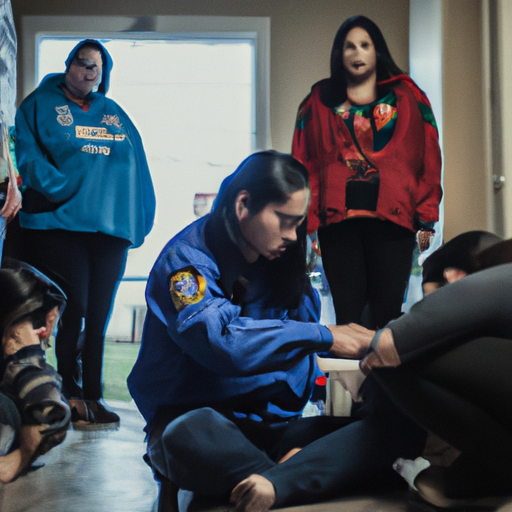Helping Hand: An Unconventional Ally in the Canadian Opioid Crisis
Hello, readers! Today we are delving into a remarkable story from the south, where the governor of Washington State, Jay Inslee, has set a new precedent in the fight against the opioid crisis in North America. As reported by The Times Colonist, the state will be disbursing funds to tribes disproportionately impacted by the opioid problem. We will be discussing the effects of the opioid crisis impacted by this particular legislation and the efforts in combating it.
The Trouble with Opioids
The opioid crisis has become an international public health scare, with Canada being hit particularly hard. This crisis has harsh consequences, affecting people of all social, economic, and demographic backgrounds. The rise of powerful synthetic opioids like fentanyl has made overdose deaths a common occurrence. Furthermore, the addiction to these substances has led to a significant increase in crime rates, causing several socioeconomic impacts, including homelessness and class action lawsuits related to the opioid crisis.
An Unprecedented Approach to Aid
Washington State’s approach here is unique, targeting aid specifically to tribal communities that have been disproportionately affected by the opioid crisis. By signing the fentanyl bill and allocating part of the settlement money from opioid manufacturers and distributors to these communities, they are directly investing in creating safe environments and resources for recovery.
The Effects
The impacts of this initiative could be great and varied, depending on the implementation. With the proper use of these funds, we could see:
- Decreased rates of opioid-related overdose deaths
- Improvement in public safety via a decrease in drug-related crime
- A decline in homelessness rates as addiction recovery progresses
- Progress in the opioid class action lawsuits as the ill effects of opioid crisis get mitigated
Naloxone: A Lifesaver in the Shadows
One of the potential applications for this freshly available funding could be increased distribution and accessibility of Naloxone. This is a necessary antidote capable of reversing the effects of an opioid overdose, allowing precious time for medical professionals to save lives. This investment could significantly contribute to reducing the rates of opioid-related overdose deaths.
A Way Forward: What Can Canada Learn?
This approach provides a blueprint for nations, including Canada, which is grappling with its own opioid crisis. Particular the indigenous community in Canada is struggling disproportionately with opioid addiction, a problem that Washington’s approach could potentially address effectively.
Implementing Prevention and Recovery Programs
Such funds in Canada could be allocated for better prevention and recovery programs. Increasing the availability of mental health professionals, providing safe places for recovery, and supplying much-needed resources for emergency services are all ways in which the impact of the crisis could be minimized.
Closing Thoughts
Looking closely at how Washington State’s fentanyl bill unfolds in the coming years may provide a vital set of lessons and guidance for other jurisdictions grappling with the opioid crisis. We are facing a challenge that has no quick fixes, but with perseverance, targeted efforts and innovation, there is hope for a brighter tomorrow when it comes to battling opioids. The key takeaways from this initiative are clear:
- Targeted aid can contribute to mitigate the effects of the opioid crisis, by directly investing into affected communities.
- The allocation of proper funds can lead to a decrease in opioid-related overdose deaths and a decrease in homelessness and crime rates.
- The importance of the accessibility of life-saving measures, such as naloxone, cannot be overstated.
- Learning from initiatives like the Washington fentanyl bill can influence and shape our attempts to battle the opioid crisis, not just in Canada but worldwide.
Until next time, stay tuned for more discussions revolving around vital happenings regarding public health and our communities.


